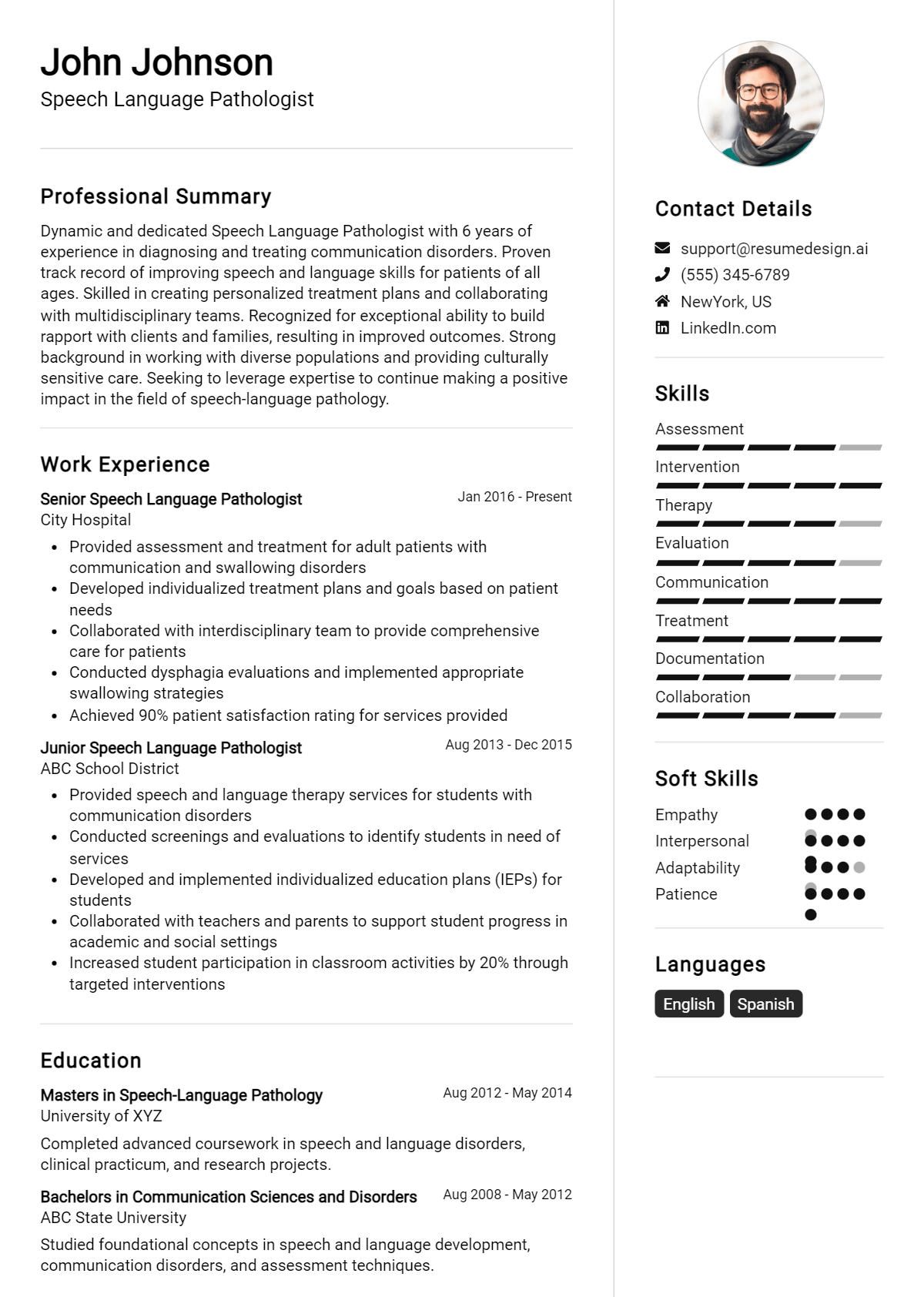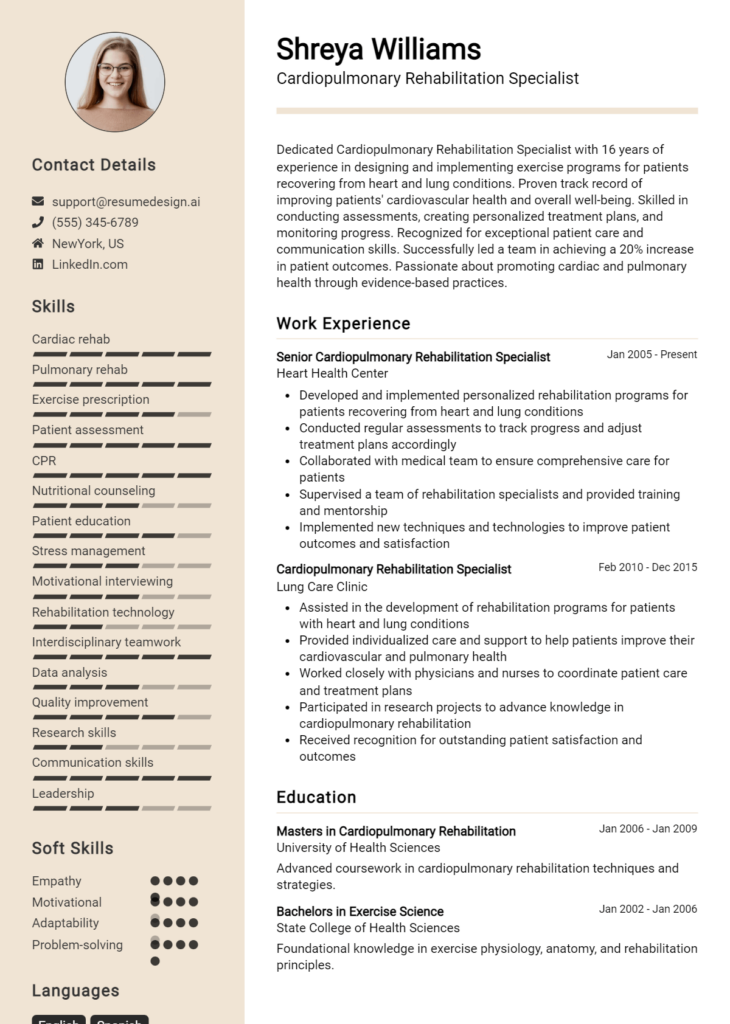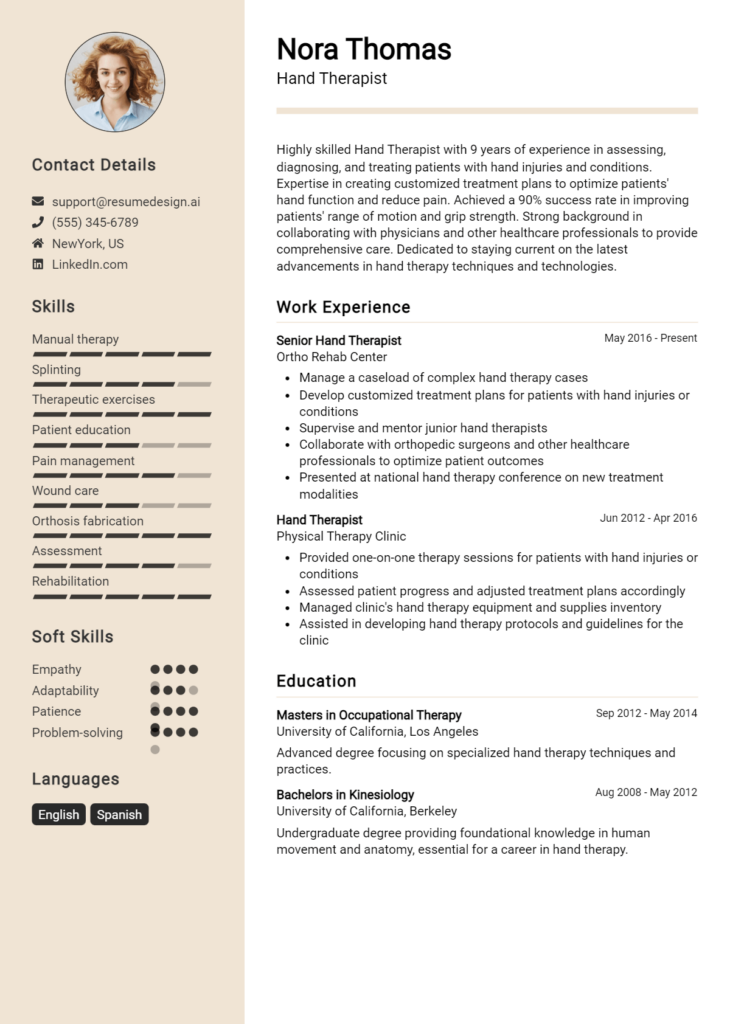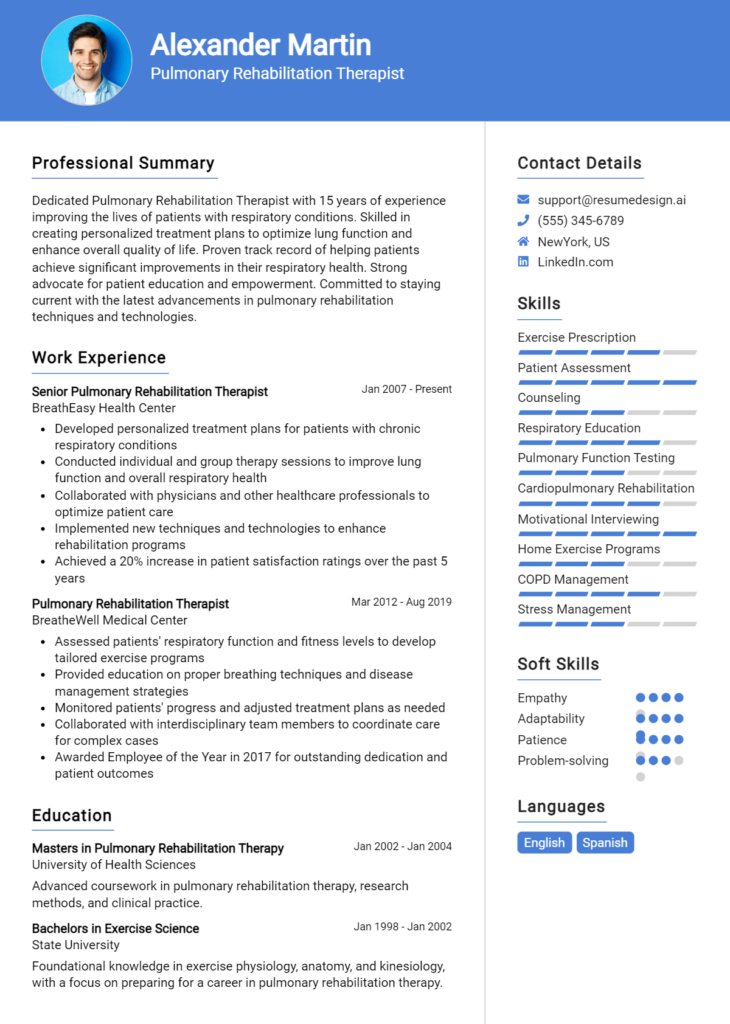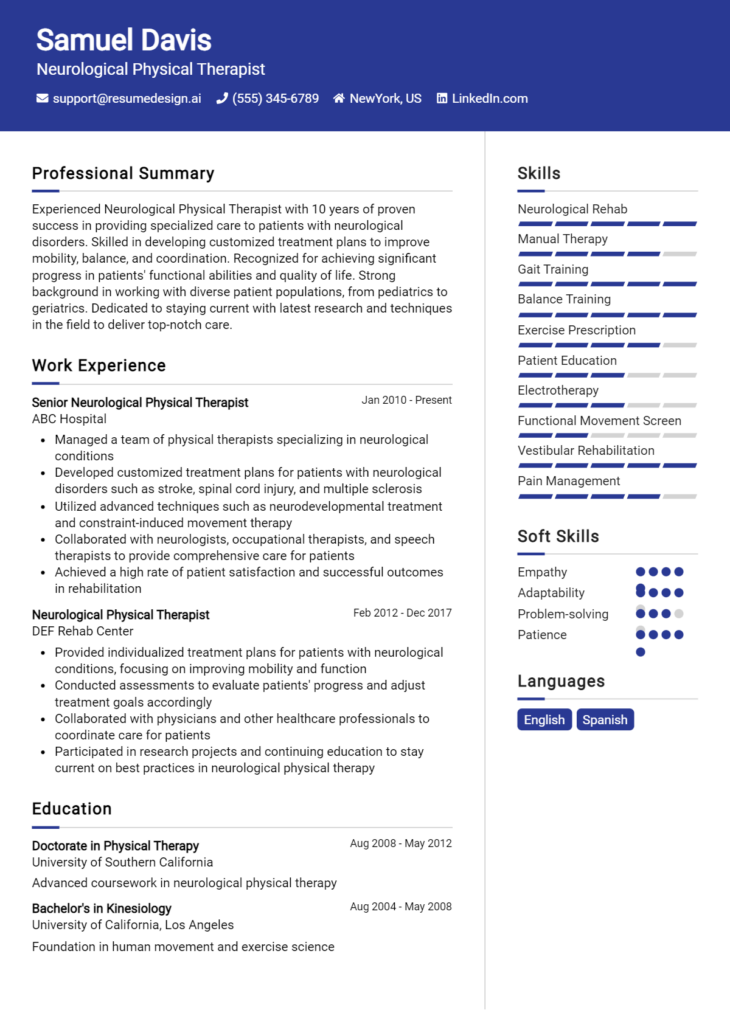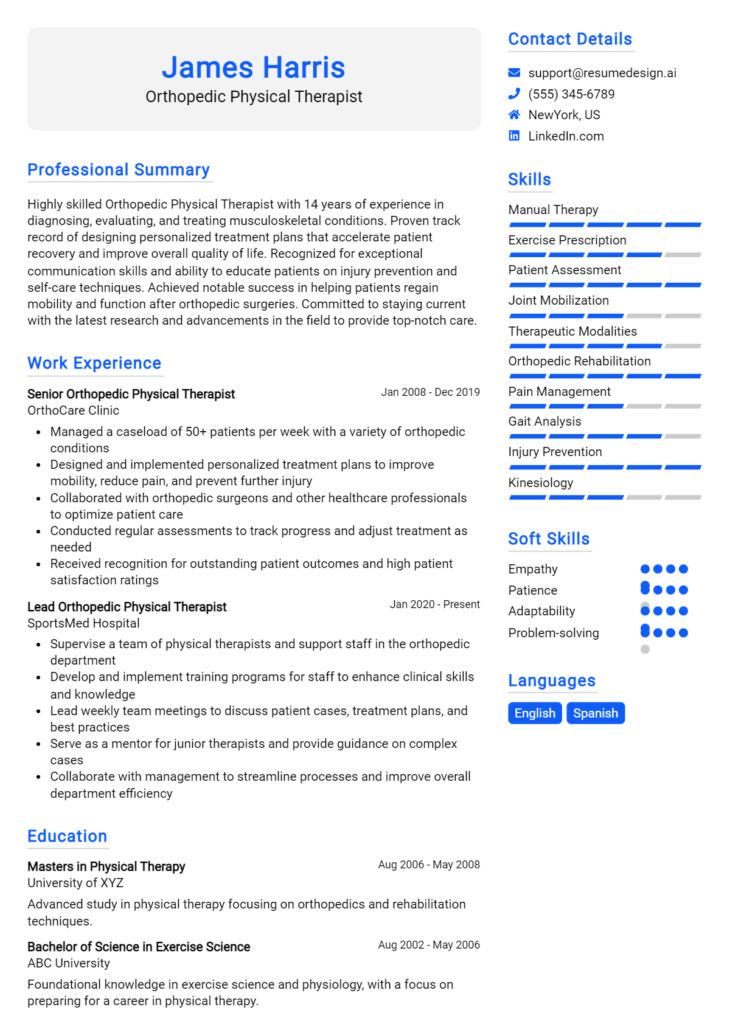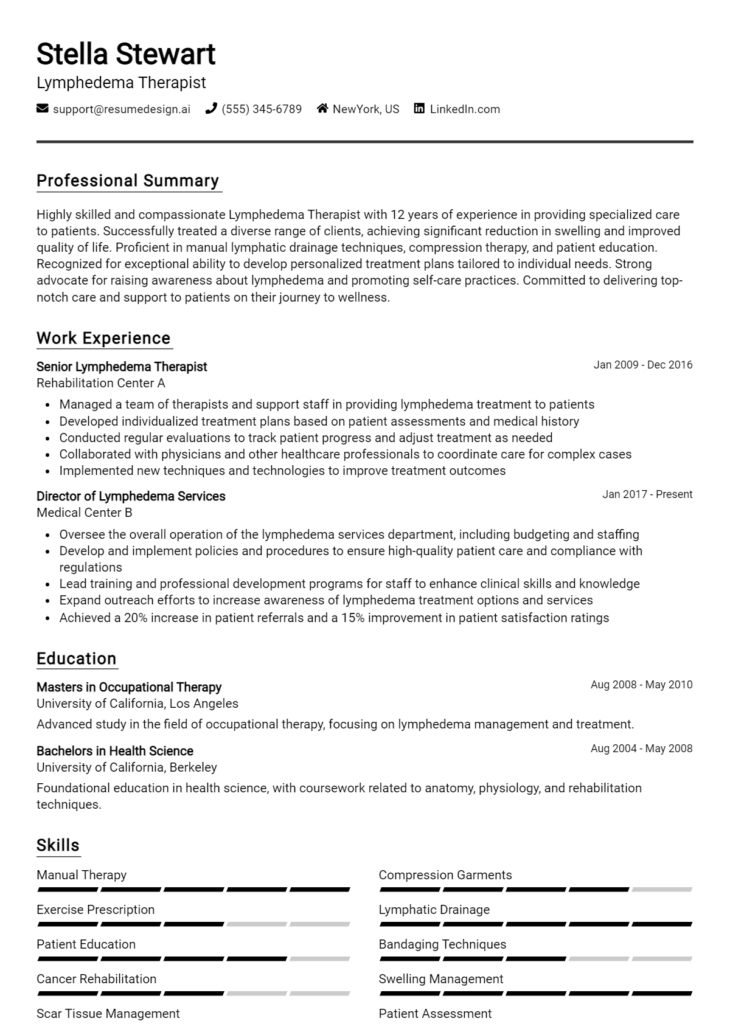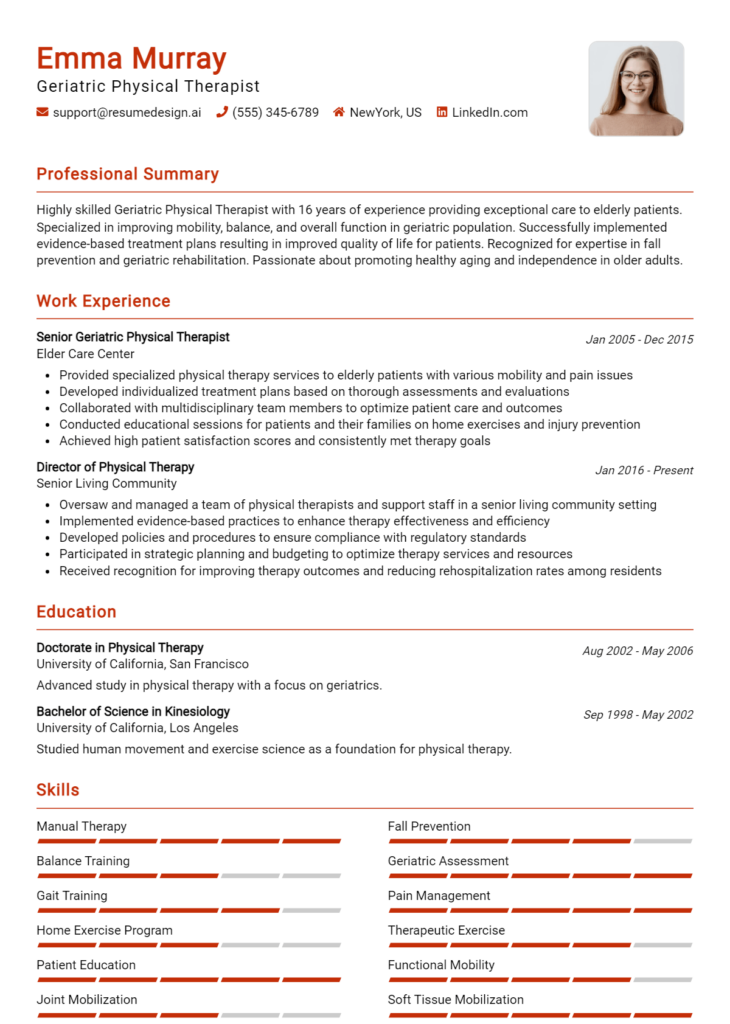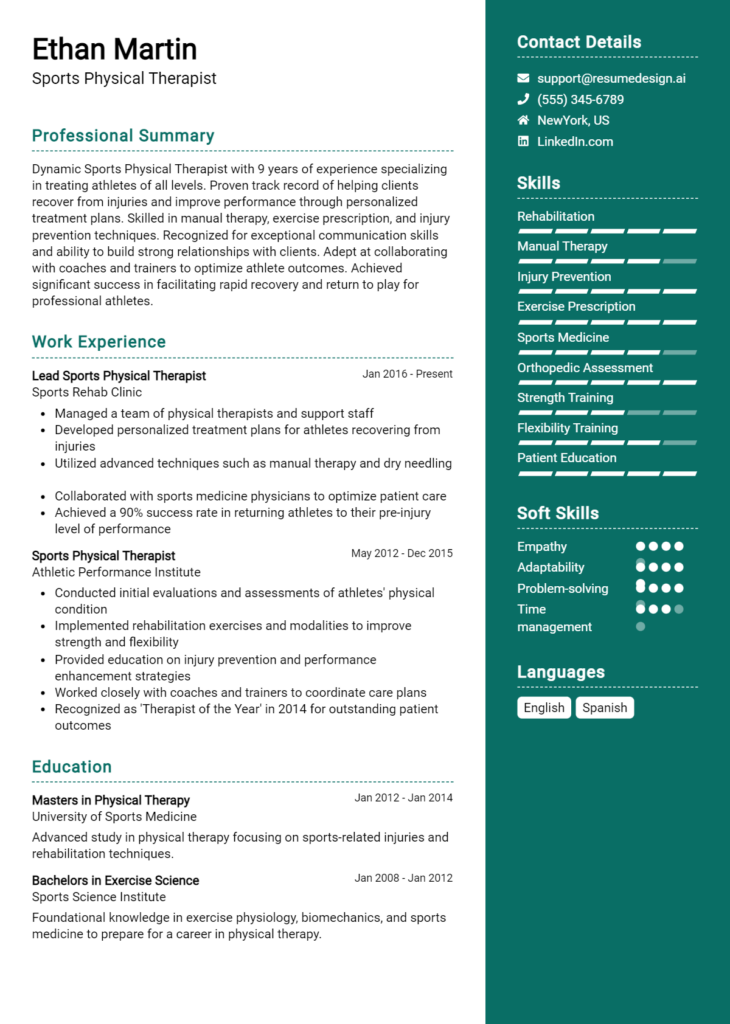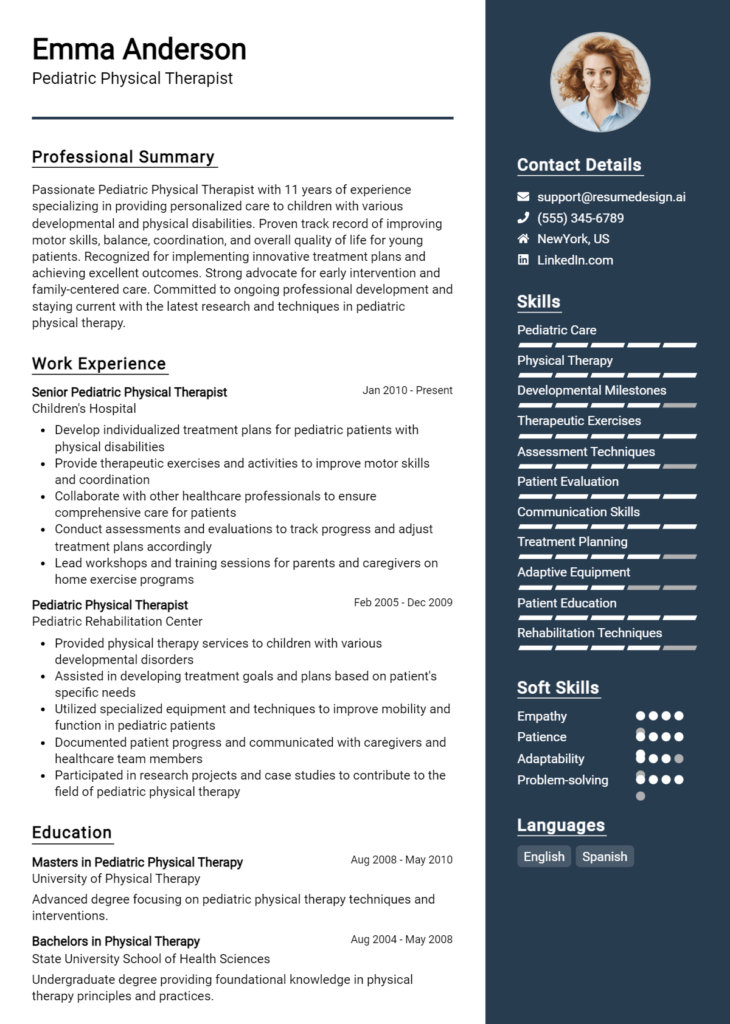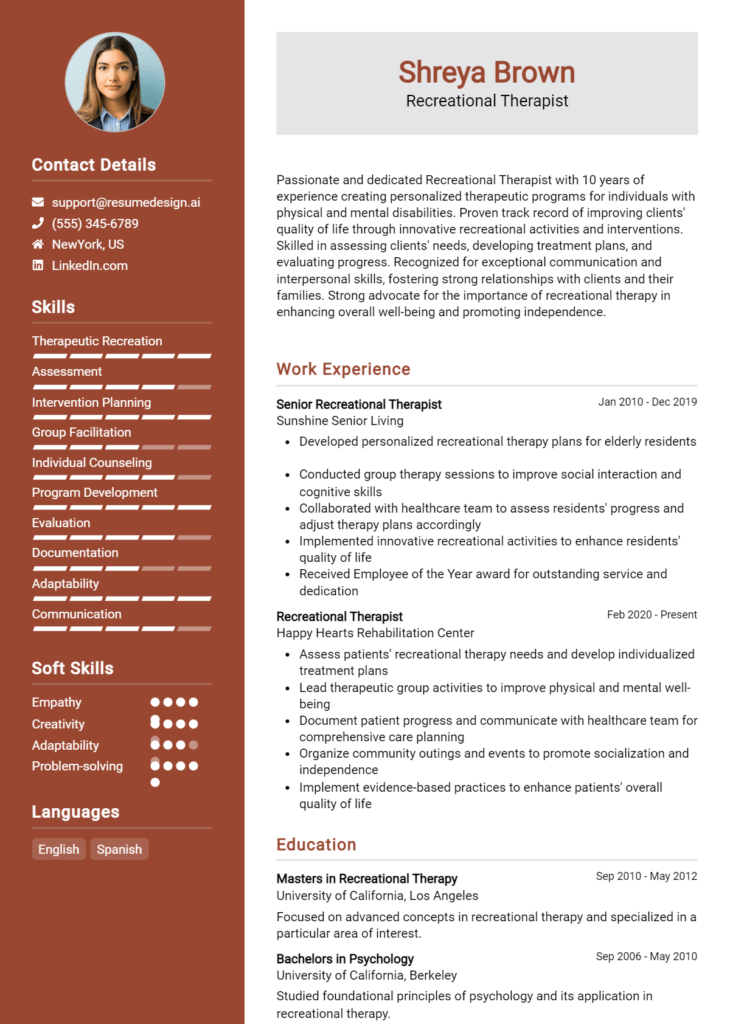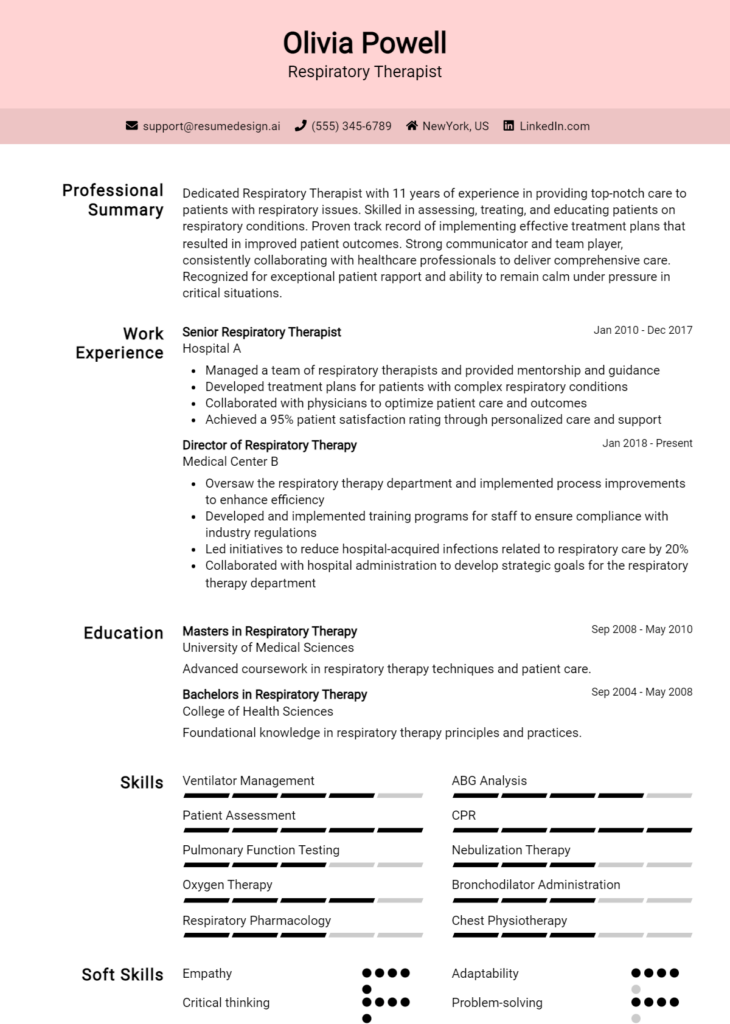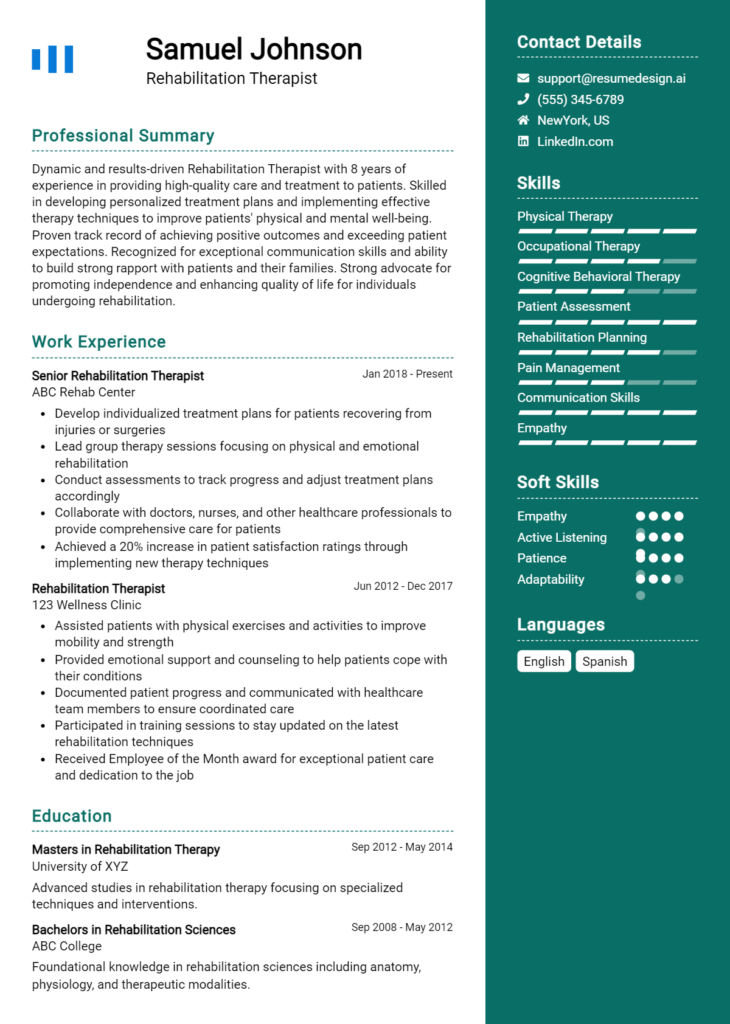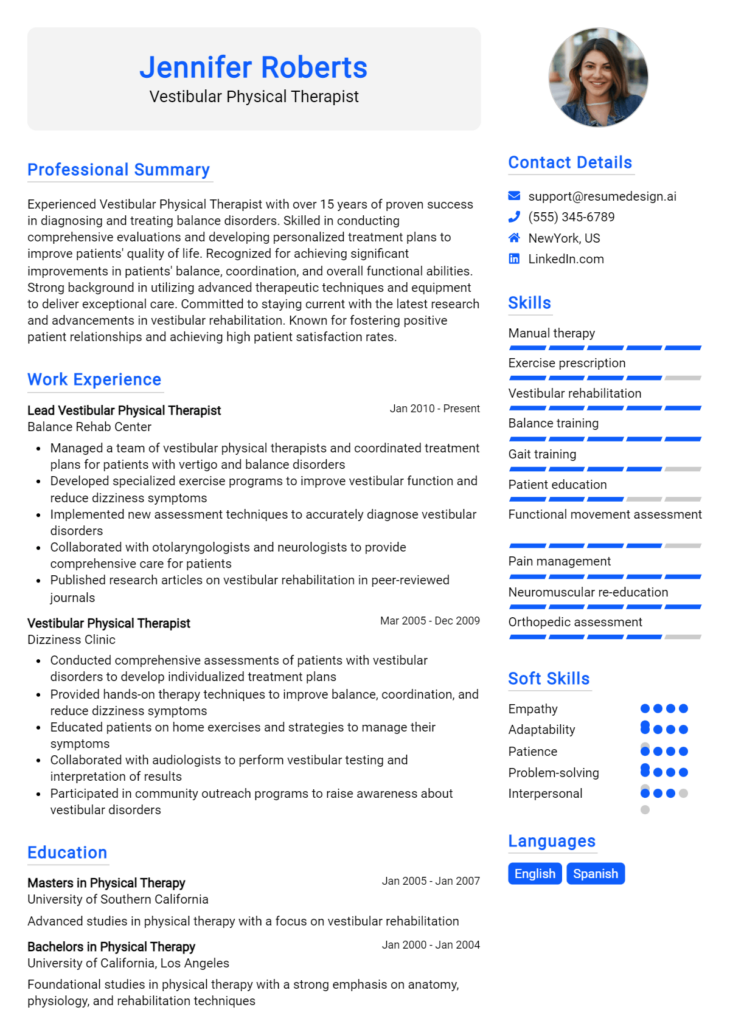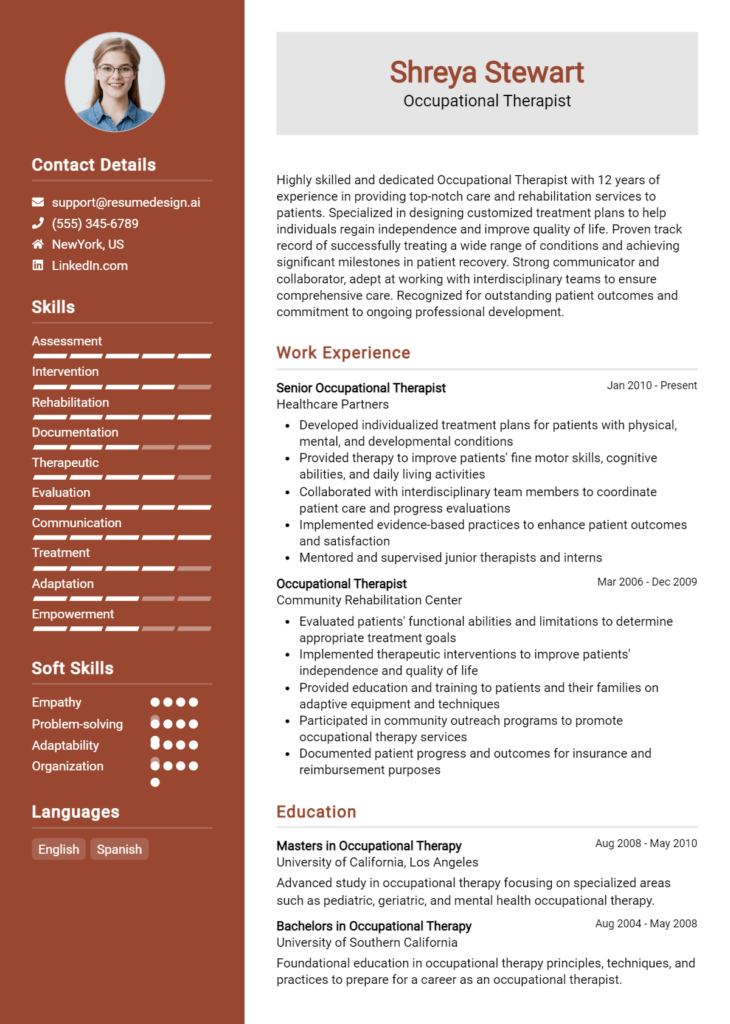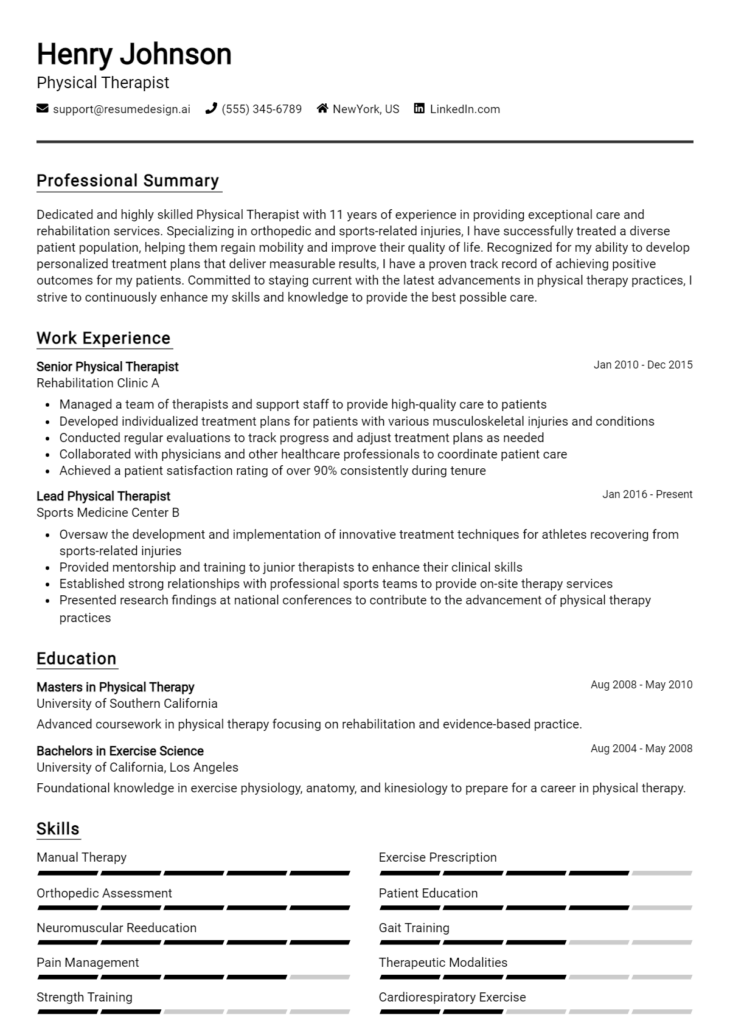Speech-Language Pathologist Core Responsibilities
A Speech-Language Pathologist (SLP) plays a critical role in assessing, diagnosing, and treating communication disorders across various populations. This professional excels in technical skills, operational procedures, and problem-solving abilities, collaborating with educators, healthcare providers, and families to create integrated treatment plans. Their expertise contributes significantly to organizational goals by improving patient outcomes and enhancing communication skills. A well-structured resume is essential for showcasing these qualifications, ensuring that their diverse skills are effectively highlighted.
Common Responsibilities Listed on Speech-Language Pathologist Resume
- Conducting comprehensive assessments of speech and language abilities.
- Developing individualized treatment plans tailored to patient needs.
- Implementing therapy sessions to improve communication skills.
- Collaborating with educators to support students with speech challenges.
- Providing family education and support regarding communication disorders.
- Monitoring and documenting patient progress and outcomes.
- Utilizing technology and resources to enhance therapy effectiveness.
- Participating in interdisciplinary team meetings to discuss patient care.
- Staying updated with the latest research and best practices in speech therapy.
- Advocating for patients' needs within healthcare and educational settings.
- Conducting workshops or training sessions for staff and families.
High-Level Resume Tips for Speech-Language Pathologist Professionals
In the competitive field of Speech-Language Pathology, a well-crafted resume serves as a critical tool for career advancement. As the first impression candidates make on potential employers, resumes must not only capture attention but also effectively reflect the candidate's unique skills and significant achievements. An impactful resume showcases the nuances of your professional journey, demonstrating your expertise in improving communication and swallowing disorders. This guide will provide practical and actionable resume tips specifically tailored for Speech-Language Pathologist professionals, ensuring that you stand out in the job market.
Top Resume Tips for Speech-Language Pathologist Professionals
- Tailor your resume to match the specific job description, emphasizing relevant skills and experiences that align with the employer's needs.
- Highlight your clinical experience in various settings, such as hospitals, schools, or private practice, to showcase versatility.
- Quantify your achievements where possible, such as the number of clients served or percentage improvements in patient outcomes.
- Include relevant certifications and licenses prominently, ensuring they are up-to-date and recognized in your state or region.
- Use action verbs to describe your responsibilities and accomplishments, making your contributions clear and impactful.
- Showcase specialized skills, such as proficiency in alternative communication methods or experience with specific populations (e.g., children with autism).
- Incorporate professional development activities, such as workshops or conferences attended, to demonstrate commitment to ongoing learning.
- Utilize a clean, professional format that is easy to read, ensuring key information stands out to hiring managers.
- Consider including a summary statement at the top that encapsulates your professional ethos and career objectives.
By implementing these resume tips, you can significantly increase your chances of securing a job in the Speech-Language Pathologist field. A well-structured and tailored resume not only highlights your qualifications but also communicates your passion for helping others, making you a compelling candidate for potential employers.
Why Resume Headlines & Titles are Important for Speech-Language Pathologist
In the competitive field of Speech-Language Pathology, a resume headline or title serves as the first impression a hiring manager will have of a candidate. A strong headline can immediately grab attention and succinctly summarize a candidate's key qualifications, making it easier for employers to assess fit for the role. It acts as a powerful marketing tool, encouraging hiring managers to delve deeper into the resume. A well-crafted headline should be concise, relevant, and directly related to the specific job being applied for, ensuring that it resonates with the skills and experiences that employers are seeking.
Best Practices for Crafting Resume Headlines for Speech-Language Pathologist
- Keep it concise—aim for one impactful sentence.
- Use keywords relevant to the job description.
- Highlight specific skills or specialties within speech-language pathology.
- Make it role-specific to align with the position being applied for.
- Incorporate quantifiable achievements or certifications if possible.
- Avoid jargon or overly complex language to maintain clarity.
- Ensure it reflects your personal brand and professional identity.
- Review and revise to ensure it aligns with your career goals.
Example Resume Headlines for Speech-Language Pathologist
Strong Resume Headlines
Dedicated Speech-Language Pathologist with 5+ Years of Experience in Pediatric Care
Bilingual Speech Therapist Specializing in Articulation and Language Development
Results-Driven Speech-Language Pathologist Committed to Enhancing Communication Skills for Adults
Certified Speech-Language Pathologist Focused on Evidence-Based Practices and Patient-Centered Care
Weak Resume Headlines
Speech-Language Pathologist Seeking Job
Experienced Professional in Communication Disorders
Strong headlines are effective because they are specific and tailored to the role, showcasing the candidate's unique strengths and experiences in a way that is appealing to hiring managers. They immediately communicate value and relevance, making a lasting impression. In contrast, weak headlines fail to impress due to their vagueness and lack of detail, leaving hiring managers with little reason to explore further. By avoiding generic phrasing and instead focusing on specific skills and achievements, candidates can significantly enhance the impact of their resumes.
Writing an Exceptional Speech-Language Pathologist Resume Summary
A well-crafted resume summary is crucial for a Speech-Language Pathologist, as it serves as the first impression for hiring managers. This brief yet impactful section quickly captures attention by highlighting key skills, relevant experience, and notable accomplishments directly related to the job role. A strong summary not only summarizes the candidate’s qualifications but also sets the tone for the rest of the resume, making it essential to keep it concise and tailored to the specific job being applied for.
Best Practices for Writing a Speech-Language Pathologist Resume Summary
- Quantify achievements: Use numbers to demonstrate the impact of your work, such as the number of patients served or improvement percentages.
- Focus on relevant skills: Highlight critical skills like assessment, therapy techniques, and collaboration with interdisciplinary teams.
- Tailor the summary: Customize your summary to align closely with the job description and specific requirements of the role.
- Be concise: Aim for 2-4 sentences that capture the essence of your qualifications without overwhelming the reader.
- Use action verbs: Start with strong action verbs to convey your competencies and contributions effectively.
- Showcase certifications: Mention any relevant certifications or licenses that enhance your qualifications.
- Highlight your passion: Include a brief statement about your commitment to helping clients improve their communication skills.
- Stay positive and professional: Maintain a confident tone that reflects your professionalism and dedication to the field.
Example Speech-Language Pathologist Resume Summaries
Strong Resume Summaries
Dynamic Speech-Language Pathologist with over 5 years of experience in pediatric therapy, successfully improving communication skills in 90% of clients within three months. Proficient in designing individualized therapy plans and collaborating with multidisciplinary teams to enhance patient outcomes.
Dedicated Speech-Language Pathologist with a track record of conducting over 300 assessments yearly, leading to a 40% increase in client satisfaction ratings. Expertise in evidence-based practices and a passion for empowering clients through effective communication strategies.
Compassionate and results-driven Speech-Language Pathologist skilled in working with adults in rehabilitation settings. Achieved a 75% improvement rate in speech recovery among stroke patients through tailored therapy programs and ongoing support.
Weak Resume Summaries
Experienced Speech-Language Pathologist looking for a new position. I have worked with many patients and have some skills in communication therapy.
Speech-Language Pathologist with a background in therapy. I am a hard worker and committed to helping people with speech issues.
The strong resume summaries above are considered effective because they quantify achievements, highlight specific skills, and demonstrate relevance to the Speech-Language Pathologist role. They provide clear evidence of the candidate’s impact on their clients and showcase a commitment to the profession. In contrast, the weak summaries lack detail and specificity, making them sound generic and unremarkable. They fail to convey any measurable outcomes or unique qualifications that set the candidates apart from others.
Work Experience Section for Speech-Language Pathologist Resume
The work experience section of a Speech-Language Pathologist resume is critical as it provides a comprehensive overview of the candidate's clinical expertise and professional background. This section not only highlights the technical skills required for effective speech-language therapy but also showcases the individual's ability to manage interdisciplinary teams and deliver high-quality therapeutic services to clients. By quantifying achievements and aligning experiences with industry standards, candidates can demonstrate their impact and effectiveness in their roles, making them stand out in a competitive job market.
Best Practices for Speech-Language Pathologist Work Experience
- Highlight specific therapeutic techniques and assessments used in clinical practice.
- Quantify outcomes, such as improvements in client speech clarity or literacy scores.
- Include collaborative projects with other healthcare professionals to show teamwork.
- Detail the management of therapy programs or initiatives that enhanced patient care.
- Utilize action verbs to describe responsibilities and achievements.
- Align experiences with relevant certifications or continuing education courses.
- Emphasize adaptability in working with diverse populations and settings.
- Provide context for each role, including the size of the caseload and types of clients served.
Example Work Experiences for Speech-Language Pathologist
Strong Experiences
- Developed and implemented a customized speech therapy program that improved client speech clarity by 40% over six months.
- Led a team of five speech therapists in a multi-disciplinary clinic, resulting in a 30% increase in patient satisfaction scores.
- Conducted workshops for parents and educators, enhancing communication strategies that benefited over 200 children in local schools.
- Collaborated with occupational therapists to create integrated treatment plans for children with complex needs, achieving a 50% reduction in therapy duration.
Weak Experiences
- Worked with clients on speech issues.
- Helped with team projects occasionally.
- Assisted in therapy sessions as needed.
- Participated in some workshops and meetings.
The examples of strong experiences are considered effective because they provide specific, quantifiable outcomes and demonstrate leadership and collaboration, which are highly valued in the field. In contrast, the weak experiences lack detail and fail to convey the candidate's contributions or impact, making them less compelling to potential employers.
Education and Certifications Section for Speech-Language Pathologist Resume
The education and certifications section of a Speech-Language Pathologist resume is crucial as it effectively showcases the candidate's academic background, industry-relevant certifications, and commitment to continuous professional development. This section not only provides potential employers with insights into the candidate's formal training and expertise but also highlights any specialized training that can enhance their clinical practice. By including relevant coursework and certifications, candidates can significantly bolster their credibility and demonstrate their alignment with the job requirements, making a compelling case for their suitability for the role.
Best Practices for Speech-Language Pathologist Education and Certifications
- Include the highest degree attained, such as a Master's or Doctorate in Speech-Language Pathology.
- List relevant certifications, such as the Certificate of Clinical Competence in Speech-Language Pathology (CCC-SLP).
- Highlight any specialized training or workshops related to specific speech disorders or therapeutic techniques.
- Provide relevant coursework that reflects knowledge in areas such as anatomy, linguistics, and communication disorders.
- Use clear and concise language to describe educational qualifications and certifications.
- Keep the section updated with any new certifications or training completed.
- Arrange qualifications in reverse chronological order, starting with the most recent.
- Ensure that all credentials are from recognized and accredited institutions or organizations.
Example Education and Certifications for Speech-Language Pathologist
Strong Examples
- M.A. in Speech-Language Pathology, University of XYZ, May 2022
- Certificate of Clinical Competence in Speech-Language Pathology (CCC-SLP), ASHA, 2022
- Completed coursework in Pediatric Speech Disorders and Adult Neurogenic Communication Disorders.
- Specialized training in Augmentative and Alternative Communication (AAC) methods, 2023.
Weak Examples
- B.A. in English Literature, University of ABC, 2010
- Certification in Public Speaking, XYZ Institute, 2015
- Completed a workshop on General Communication Skills, 2020.
- Outdated certification in Early Childhood Education, 2018.
The strong examples are considered effective because they directly align with the qualifications and responsibilities of a Speech-Language Pathologist, showcasing relevant degrees, recognized certifications, and specialized training that enhance clinical practice. In contrast, the weak examples lack relevance to the field of speech-language pathology and do not demonstrate the necessary expertise or commitment to the profession, making them less impactful for potential employers.
Top Skills & Keywords for Speech-Language Pathologist Resume
As a Speech-Language Pathologist (SLP), possessing a diverse set of skills is paramount to effectively assess and treat individuals with communication and swallowing disorders. A well-crafted resume should highlight both hard and soft skills to demonstrate a SLP's qualifications and ability to connect with patients. Skills not only showcase your expertise but also communicate your capacity to handle the various challenges encountered in this rewarding field. By presenting a robust skill set, SLPs can enhance their chances of landing interviews and ultimately securing positions that allow them to make a significant impact on their clients' lives.
Top Hard & Soft Skills for Speech-Language Pathologist
Soft Skills
- Empathy
- Active Listening
- Communication Skills
- Patience
- Problem-Solving
- Adaptability
- Team Collaboration
- Critical Thinking
- Time Management
- Cultural Competency
- Conflict Resolution
- Creativity
- Emotional Intelligence
- Flexibility
- Attention to Detail
- Motivation
Hard Skills
- Speech and Language Assessment
- Treatment Plan Development
- Knowledge of Speech Disorders
- Familiarity with Augmentative and Alternative Communication (AAC)
- Swallowing Evaluations
- Use of Speech Therapy Software
- Data Collection and Analysis
- Implementation of Evidence-Based Practices
- Knowledge of Anatomy and Physiology of Speech
- Experience with Pediatric and Adult Populations
- Parent and Caregiver Training
- Bilingual or Multilingual Proficiency (if applicable)
- Research Skills
- Telepractice Proficiency
- Understanding of Educational Guidelines and IEPs
- Clinical Documentation
- Familiarity with Health Insurance and Billing Practices
For more insights on how to effectively present your skills and work experience in your resume, consider exploring the linked resources to enhance your job application.
Stand Out with a Winning Speech-Language Pathologist Cover Letter
Dear Hiring Manager,
I am writing to express my interest in the Speech-Language Pathologist position at [Company Name], as advertised on [Job Board/Company Website]. With a Master’s degree in Speech-Language Pathology and over five years of experience working in diverse clinical settings, I have developed a comprehensive skill set that I believe aligns perfectly with the needs of your team. My passion for improving the lives of individuals with communication disorders drives my commitment to providing high-quality assessments and personalized therapy plans.
Throughout my career, I have successfully worked with clients of various ages, from children with articulation disorders to adults recovering from strokes. My approach combines evidence-based practices with compassionate care, ensuring that each client feels supported and motivated throughout their therapy journey. At [Previous Employer], I implemented innovative techniques that led to a 30% improvement in client outcomes, showcasing my ability to adapt and tailor therapeutic strategies to meet individual needs effectively.
I am particularly drawn to [Company Name] because of your reputation for fostering a collaborative and inclusive environment, which I believe is essential for successful therapy outcomes. I am excited about the possibility of contributing to your multidisciplinary team and working together to enhance communication skills and overall quality of life for your clients. I am eager to bring my expertise in augmentative and alternative communication (AAC) devices and my dedication to ongoing professional development to your organization.
Thank you for considering my application. I look forward to the opportunity to discuss how my background, skills, and enthusiasms align with the goals of [Company Name]. I am excited about the prospect of contributing to your team and making a meaningful difference in the lives of those we serve.
Sincerely,
[Your Name]
[Your Contact Information]
Common Mistakes to Avoid in a Speech-Language Pathologist Resume
When crafting a resume as a Speech-Language Pathologist (SLP), it’s essential to present your skills and experiences effectively to stand out in a competitive job market. However, many candidates make critical mistakes that can hinder their chances of landing an interview. Understanding these common pitfalls can help you create a polished and professional resume that highlights your qualifications and expertise in speech-language pathology.
Neglecting Tailoring: Failing to customize your resume for each job application can make it appear generic. Tailoring your resume to match the specific job description demonstrates your genuine interest and relevant skills.
Using Jargon or Technical Language: While it’s important to showcase your expertise, using excessive jargon can alienate readers who may not be familiar with specific terms. Aim for clarity and conciseness to ensure your qualifications are easily understood.
Overloading with Information: Including too much information can overwhelm hiring managers. Focus on relevant experiences and skills that directly relate to the position, and keep your resume concise—ideally one page.
Ignoring Formatting: A cluttered or unprofessional layout can detract from your resume's content. Use clear headings, bullet points, and consistent fonts to create an organized and visually appealing document.
Omitting Key Skills: Failing to highlight essential skills such as assessment techniques, treatment planning, and patient communication can leave out important qualifications. Ensure your key skills are prominently displayed, particularly those mentioned in the job listing.
Including Irrelevant Experience: Listing unrelated work experience can dilute your qualifications. Focus on roles and experiences that are pertinent to speech-language pathology, such as internships, clinical placements, or relevant volunteer work.
Neglecting Continuing Education: Not mentioning certifications, licenses, or ongoing education can make your resume less competitive. Including these elements showcases your commitment to professional development in the field of speech-language pathology.
Typos and Grammatical Errors: Errors in spelling or grammar can create a negative impression and suggest a lack of attention to detail. Always proofread your resume multiple times and consider having someone else review it for mistakes.
Conclusion
As a Speech-Language Pathologist, your expertise in diagnosing and treating communication and swallowing disorders is invaluable. Throughout your career, you’ve honed skills in assessment, intervention, and collaboration with other professionals to support your clients' needs. Highlighting these abilities effectively on your resume is crucial to stand out in a competitive job market.
First, ensure your resume showcases your relevant education and certifications, including any specialized training. Emphasize your clinical experience and specific techniques you’ve utilized in therapy sessions. Additionally, incorporating measurable outcomes from your interventions can demonstrate your effectiveness and impact in previous roles.
Next, tailor your resume to match the job description of the position you are applying for. Using keywords from the job listing can help ensure your resume gets noticed by hiring managers and applicant tracking systems.
Finally, don't overlook the importance of a compelling cover letter that narrates your passion for speech-language pathology and how your unique experiences make you a perfect fit for the role.
Now is the perfect time to review and enhance your Speech-Language Pathologist resume. Take advantage of various resources available to you, such as resume templates, a user-friendly resume builder, inspiring resume examples, and customizable cover letter templates. By utilizing these tools, you can create a polished and professional resume that effectively showcases your skills and qualifications. Start updating your resume today to take the next step in your career!

